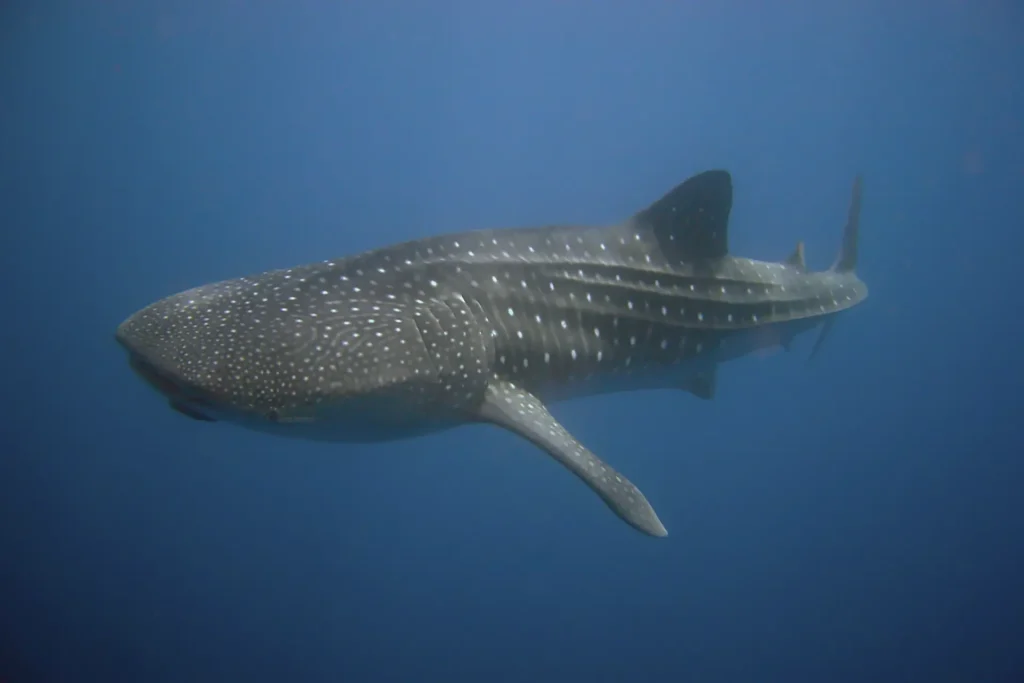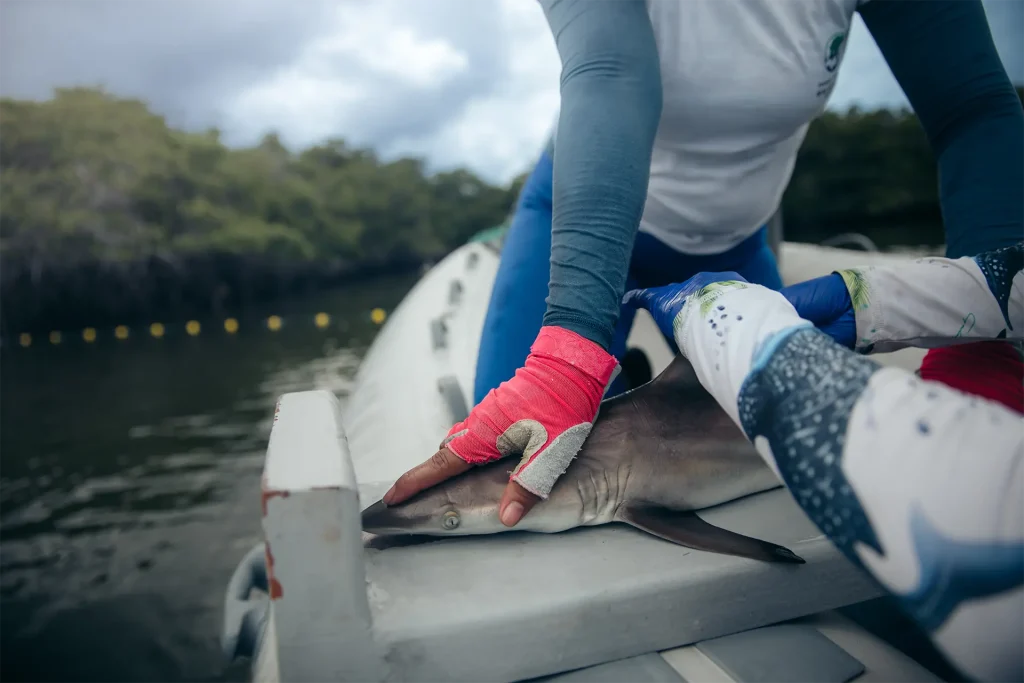In the expansive realm of oceans, renowned for its remarkable biological diversity and intricate web of life, sharks hold a dominant position. As apex predators with a crucial ecological role, sharks face severe threats that endanger their survival. This is why International Shark Awareness Day, observed every July 14th, is dedicated to highlighting the significance of sharks in marine ecosystems and advocating for their protection.
Shark Diversity
The Galápagos Marine Reserve hosts at least 35 shark species, including the hammerhead, Galápagos, tiger, whitetip reef, blacktip reef, and the awe-inspiring whale shark. This rich diversity underscores the importance of the Galápagos’ marine ecosystems and the urgent need to preserve the sharks of this extraordinary region.

Challenges and Threats
As top predators in marine food webs, sharks are essential. However, they face significant threats such as environmental changes from pollution and climate change, and particularly, illegal fishing for their fins. Effective conservation measures are crucial to safeguard sharks and maintain the health and resilience of the oceans.
The scalloped hammerhead (Sphyrna lewini), one of the most vulnerable species in the Galápagos Marine Reserve, has seen its population decline by over 80% in the past 75 years. This alarming statistic calls for immediate action to prevent the extinction of this species. Recently, the first scalloped hammerhead nursery was discovered in the Galápagos Marine Reserve in 2017, highlighting the need for continued research.
Research and Conservation
Since 2021, the Galápagos Conservancy has supported a vital research project led by the Galápagos National Park Directorate and park ranger Eduardo Espinoza. This project investigates the behavior, migration, and essential feeding and reproductive habitats of key shark species in Galápagos waters. The collected data not only enhances the scientific knowledge but is crucial for developing effective conservation strategies. Espinoza notes that “understanding these fundamental aspects is essential for creating conservation policies that protect these remarkable marine predators and support the overall health of the marine ecosystem.”

Economic and Social Impact
In the Galápagos Archipelago, sharks are pivotal to both the marine ecosystem and the local economy. The marine tourism industry, a major economic driver in the region, relies heavily on shark sightings. These magnificent creatures draw visitors from around the world who come to observe and swim with them in their natural environment. Sharks enhance the tourist experience and provide employment and livelihoods for the local community.
Commitment to Marine Conservation
On International Shark Awareness Day, the general director, Dr. Washington Tapia, reaffirms the Galápagos Conservancy's dedication to collaborative efforts in conserving shark habitats and fostering a harmonious relationship between sharks and humans. Dr. Tapia highlights the commitment to ensuring a resilient future for these iconic species by advocating for policies and regulations that ensure their protection and long-term conservation.
The efforts to protect Galápagos sharks are supported by the generous contributions of many individuals, reflecting the commitment to marine conservation. Through funding research and conservation initiatives, we are all contributing to the health of Galápagos’ sharks and their marine ecosystems.
The story of sharks in the Galápagos is a testament to the power of collaboration in preserving the valuable marine life.
